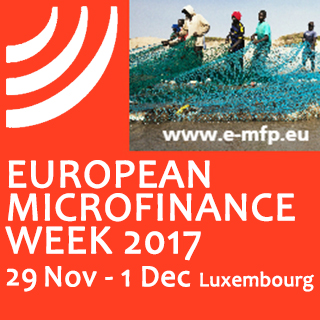At  the session titled “Building an Enabling Environment for Low-Income Housing Finance,” R V Verma, former Chairman of the National Housing Bank (NHB) (India) and consultant to the World Bank Group, said that “pushing the formal financial system to reach out to the informal sector [presents] a lot of challenges, but also huge opportunities. As part of financial inclusion, housing microfinance has a very important role.” Mr Verma went on to describe the market in India, which has an outstanding mortgage balance of INR 13 trillion (USD 200 billion) but a shortage of 24 million housing units. He also explained efforts to mitigate risk for housing lenders – both credit risk and issues with land title. Among the tools in use is a central registry of outstanding property loans. Mortgage insurance is also available even to informal workers – when lenders are willing to issue them loans.
the session titled “Building an Enabling Environment for Low-Income Housing Finance,” R V Verma, former Chairman of the National Housing Bank (NHB) (India) and consultant to the World Bank Group, said that “pushing the formal financial system to reach out to the informal sector [presents] a lot of challenges, but also huge opportunities. As part of financial inclusion, housing microfinance has a very important role.” Mr Verma went on to describe the market in India, which has an outstanding mortgage balance of INR 13 trillion (USD 200 billion) but a shortage of 24 million housing units. He also explained efforts to mitigate risk for housing lenders – both credit risk and issues with land title. Among the tools in use is a central registry of outstanding property loans. Mortgage insurance is also available even to informal workers – when lenders are willing to issue them loans.
Adedeji Adesemoye of the Central Bank of Nigeria described his institution’s efforts to address Nigeria’s shortage of 17 million housing units via resources including a loan package of USD 300 million awarded by the World Bank’s International Development Association (IDA) in 2012. While much of this package was for refinancing mortgages, USD 15 million of it was earmarked for housing microfinance. That portion was disbursed to nine microfinance institutions to test lending to existing (non-housing) clients for land acquisition, incremental construction and

 This paper reviews the impacts of multiple agricultural partial credit guarantee schemes (PCGSs), through which governments agree to absorb a portion of lenders’ losses on particular loans or loan portfolios. Governments often use PCGSs to de-risk financial institutions’ lending to small and medium-sized enterprises (SMEs), especially as a countercyclical tool in times of
This paper reviews the impacts of multiple agricultural partial credit guarantee schemes (PCGSs), through which governments agree to absorb a portion of lenders’ losses on particular loans or loan portfolios. Governments often use PCGSs to de-risk financial institutions’ lending to small and medium-sized enterprises (SMEs), especially as a countercyclical tool in times of the session titled “Building an Enabling Environment for Low-Income Housing Finance,” R V Verma, former Chairman of the
the session titled “Building an Enabling Environment for Low-Income Housing Finance,” R V Verma, former Chairman of the  the
the